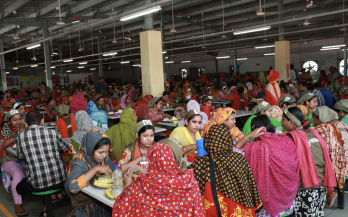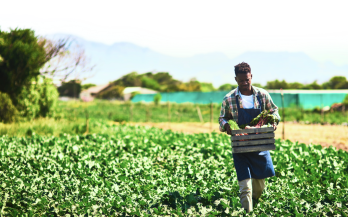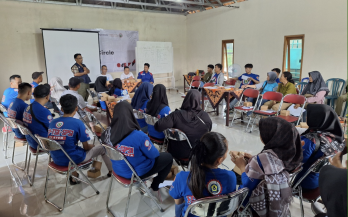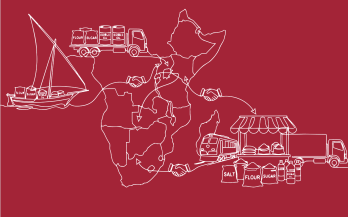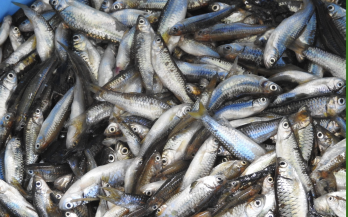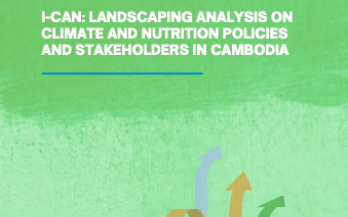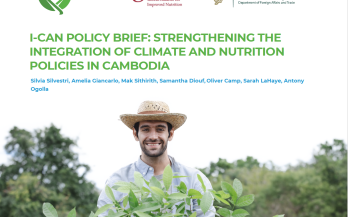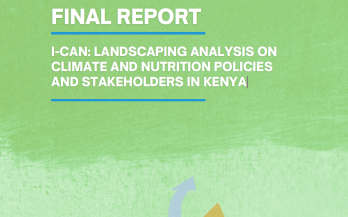- 02/03/2026
Many adults spend most of their waking hours in the workplace, making it an important—yet underappreciated—leverage point for change. In the context of food systems, workplaces can contribute to significantly improved nutrition through employer-provided nutrition programmes (also known as ‘workforce nutrition programmes’ (WFN)). However, the process of gaining support for these initiatives and the potential for institutionalising them within policy remain underexamined. This case study aims to address this by examining the development of WFN in Bangladesh, including at the factory level and through the government-led National Workforce Nutrition Alliance (NWNA). It also considers opportunities for integrating nutrition considerations into occupational safety and health (OSH) policies, regulations, and practices in Bangladesh.
- 26/02/2026
I-CAN Policy Brief, June 2025. This policy brief highlights the challenges and opportunities arising from the need to better integrate climate and nutrition policies in Tanzania. Despite growing recognition of their interconnectedness, policies remain largely fragmented and operate in silos, particularly across health, nutrition, and other food systems sectors. Food and agriculture policies lead in climate-nutrition integration by including concrete strategies and accountability mechanisms. However, outdated legacy policies, weak institutional coordination, and fragmented financing and data systems hinder effective integration and implementation. Key barriers include limited cross-sectoral collaboration, under-resourced coordination structures, and lack of shared data and financing mechanisms. Recommendations include establishing a national Climate–Nutrition Coordination Committee, implementing integrated financing tracking, adopting joint monitoring indicators, and promoting inclusive stakeholder engagement to strengthen policy coherence and accelerate impactful climate-nutrition action in Tanzania.
- 26/02/2026
Many adults spend most of their waking hours at the workplace, making the latter a strategic, yet underappreciated, environment for health and well-being interventions. Evidence shows that workforce nutrition initiatives can improve workers’ health and well-being as well as business outcomes, yet their full potential as occupational and public health interventions remain underexplored. This paper examines the extent to which collective bargaining agreements globally include clauses on workforce nutrition, operationalised as healthy food at work, breastfeeding support, nutrition-focused health checks and follow-up, and nutrition education. Using web-based and bibliographic searches, the study identified open-access global, national, and sector-specific collective bargaining agreement (CBA) repositories. It analysed 26,015 agreements from the WageIndicator CBA database (global coverage), Légifrance (France), and the Office of Personnel Management (US) databases. Explicit references to workforce nutrition were rare.
- 20/02/2026
ESA countries began implementing food fortification in the 1990s, starting with salt iodization and gradually expanding to include additional food vehicles. Today, of the 26 countries covered, 21 countries have mandatory fortification of salt, 13 of wheat flour, 10 of edible oil and maize flour, and 5 of sugar.Despite this progress, micronutrient deficiencies remain widespread across Eastern and Southern Africa, with persistently high levels of iron, vitamin A, zinc, folate, and iodine deficiencies.
- 13/02/2026
To strengthen evidence and practice about local fresh food markets and food systems governance, in 2025, ICLEI CityFood, the Global Alliance for Improved Nutrition (GAIN), and World Farmers Markets Coalition published two editions of a handbook about markets and resilient cities. The second edition comprises 31 city-market case studies and is structured around the CityFood Market Action Framework. Between May and December 2025, following the launch of the first edition, ICLEI CityFood and GAIN co-convened eight online sessions of a Community of Interest focused on markets and cities. The sessions were structured around four thematic areas: an introduction to how cities shape food markets; gender and social intersectionality; managing food waste; and access to nutrition. Across all eight sessions, a total of 327 participants from 27 cities and 56 organisations took part. This paper shares a summary of those prior sessions and signposts upcoming sessions
- 13/02/2026
Tempeh is a popular traditional plant-based protein that plays a vital role in Indonesian diets. Indonesia’s reliance on imported soybeans (2.6 million tons/year) for tempeh production, however, creates market instability and food vulnerabilities, particularly regarding cost and supply fluctuations. This paper analyses the technical, economic, and market feasibility of alternative legumes—specifically, jack beans, mung beans, and peanuts—as sustainable substitutes for soybeans in tempeh production. The aim is to identify the most viable option for immediate scale-up to support local food systems and improve nutritional outcomes.
- 06/02/2026
Fish offer a potentially sustainable solution to food security and nutrition challenges in Indonesia. Despite abundant aquatic resources, per capita fish consumption remains lower than in neighbouring countries. Factors such as overfishing, pollution, and unsustainable aquaculture practices limit growth, while climate change poses additional threats to fish stocks.
- 06/02/2026
This report summarizes key findings from the policy landscaping and stakeholder mapping analyses in Cambodia and provides recommendations to strengthen policy integration under the Initiative on Climate Action and Nutrition (I-CAN).
- 06/02/2026
Cambodia faces urgent challenges at the intersection of climate change and nutrition: rising climate risks threaten food systems and nutrition outcomes, particularly for vulnerable rural communities. This policy brief presents findings from a 2025 light-touch assessment involving 32 policies and key stakeholder interviews.
- 06/02/2026
This report summarizes the key findings from the Kenya policy landscaping analysis and stakeholder mapping analysis and provides recommendations for better policy integration in Kenya in support of the Initiative on Climate Action and Nutrition (I-CAN).
